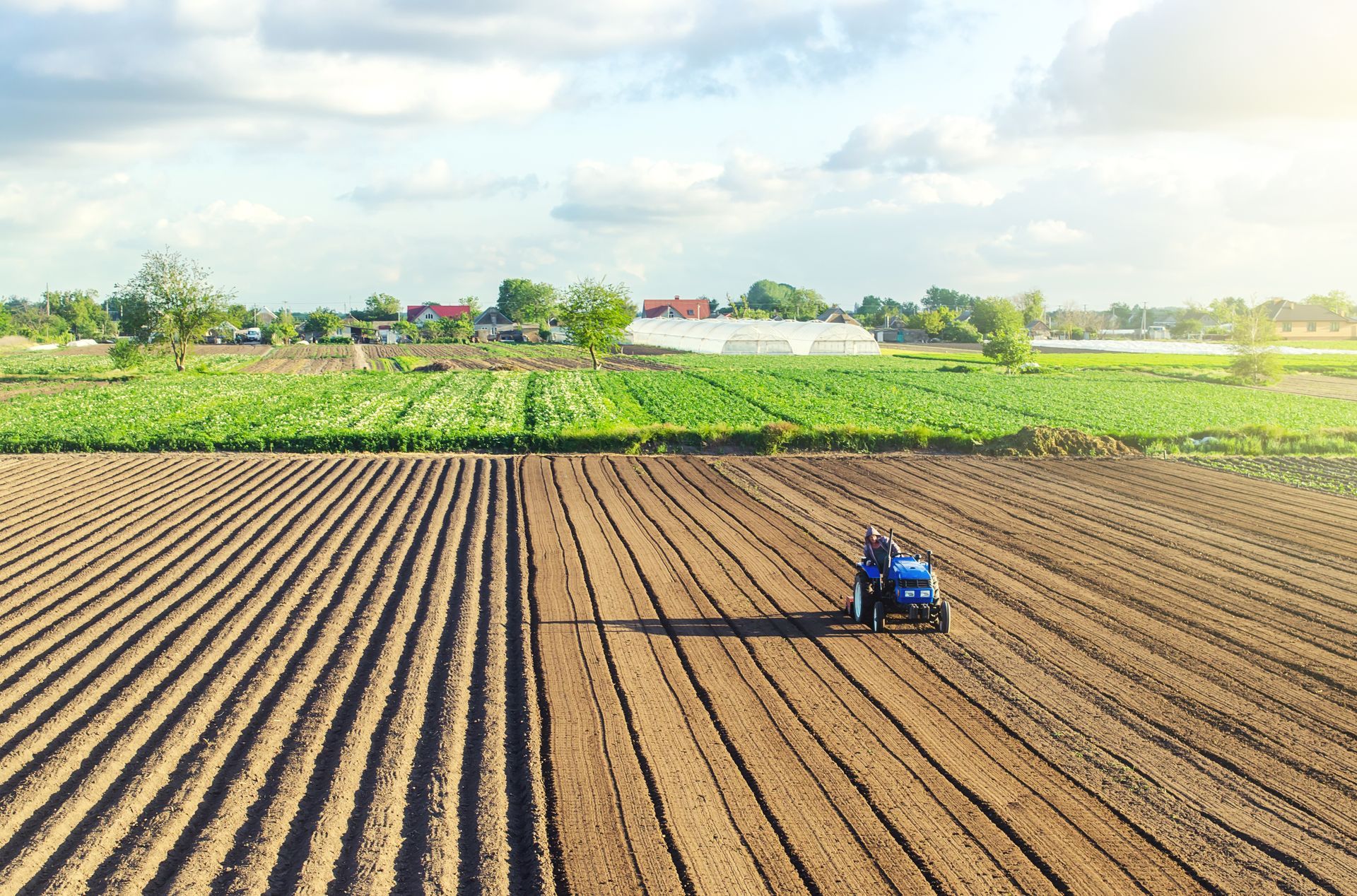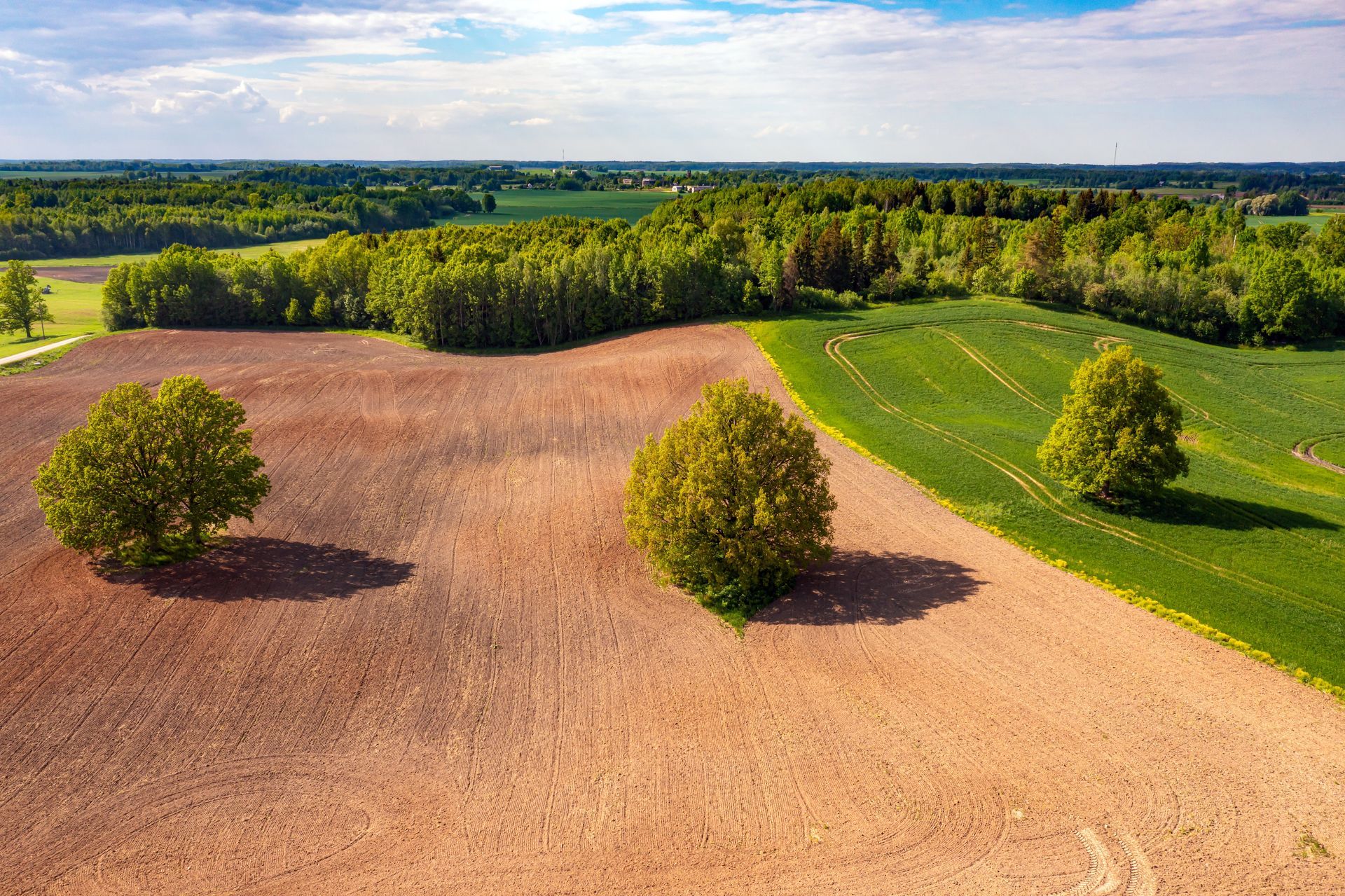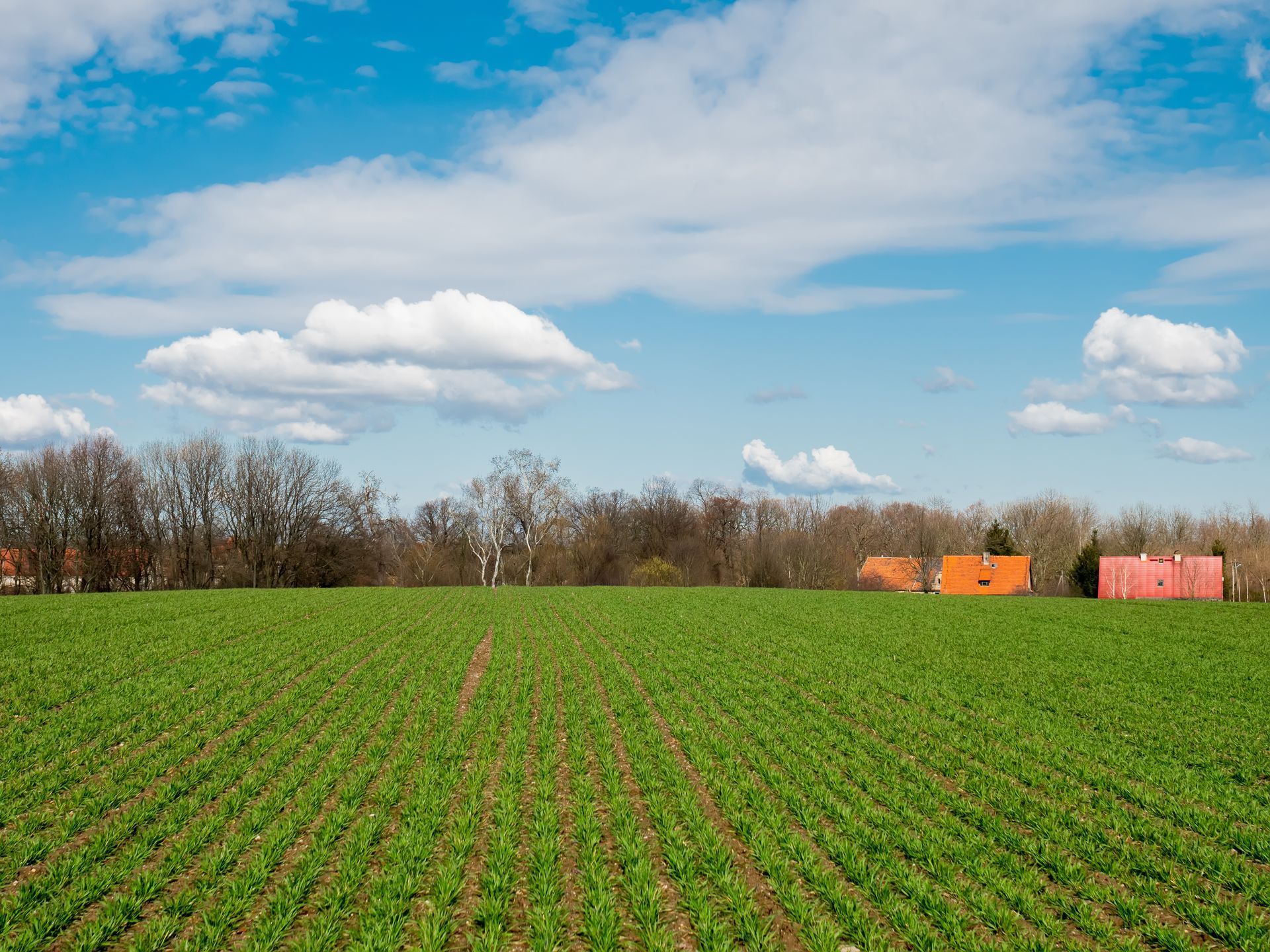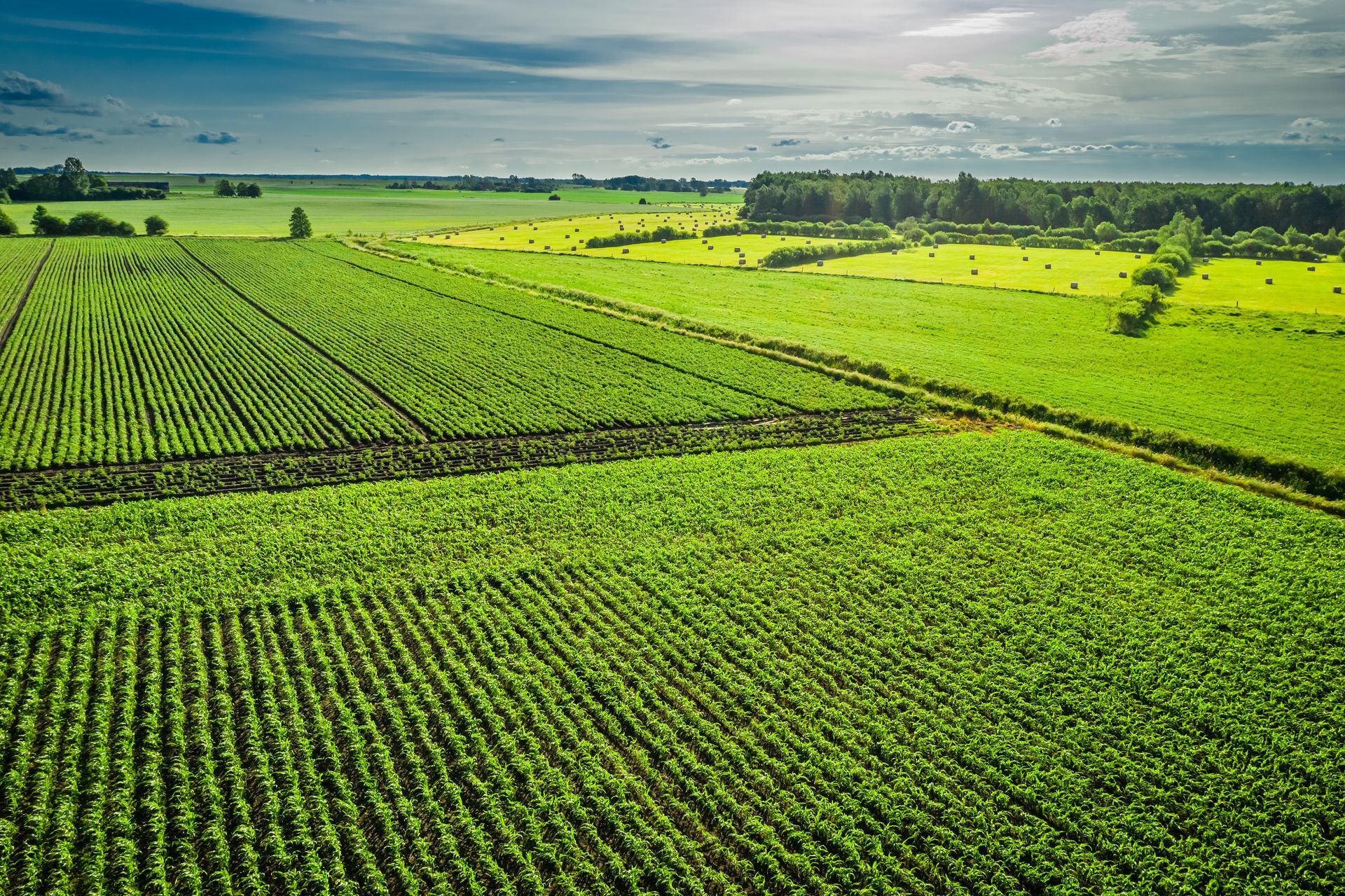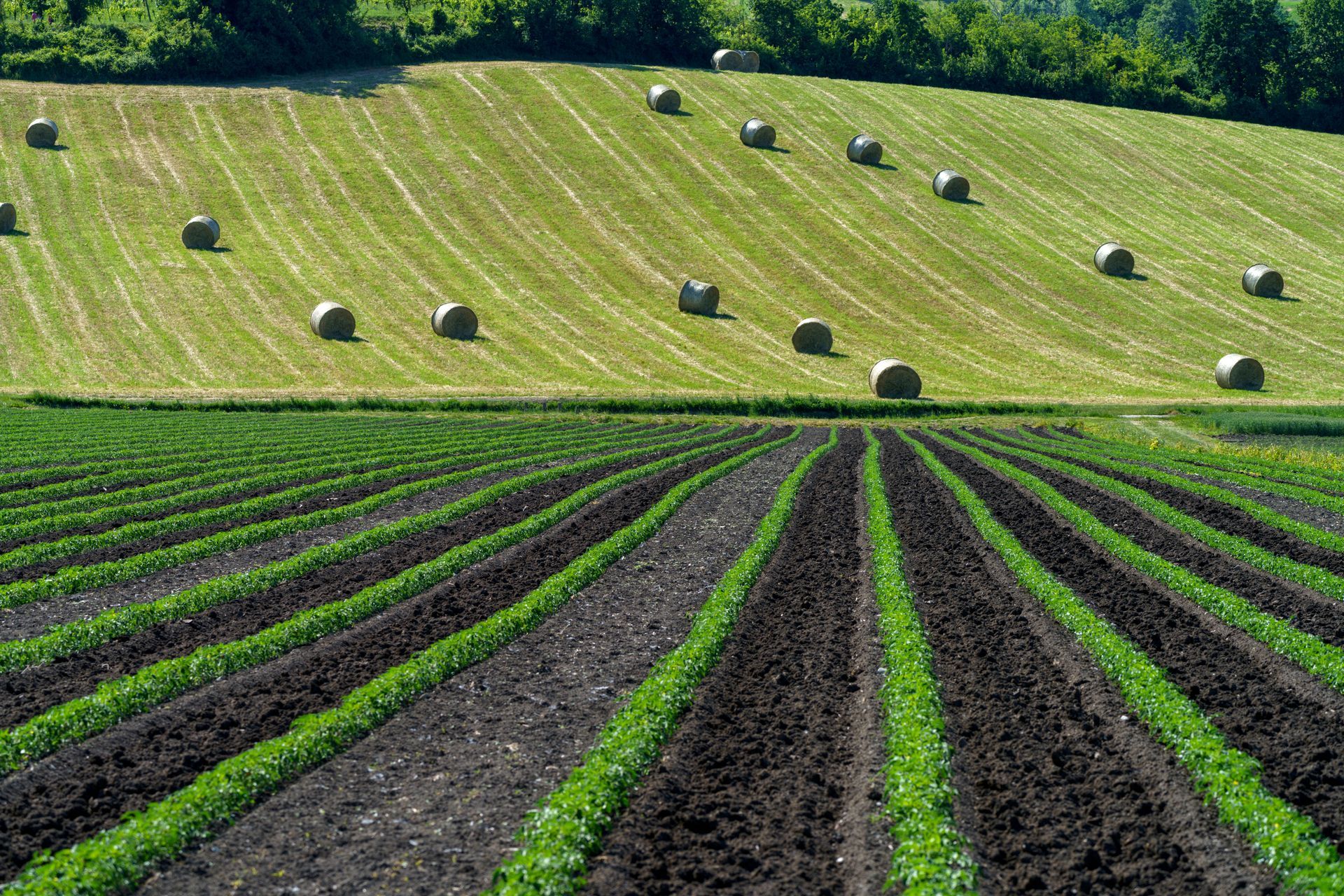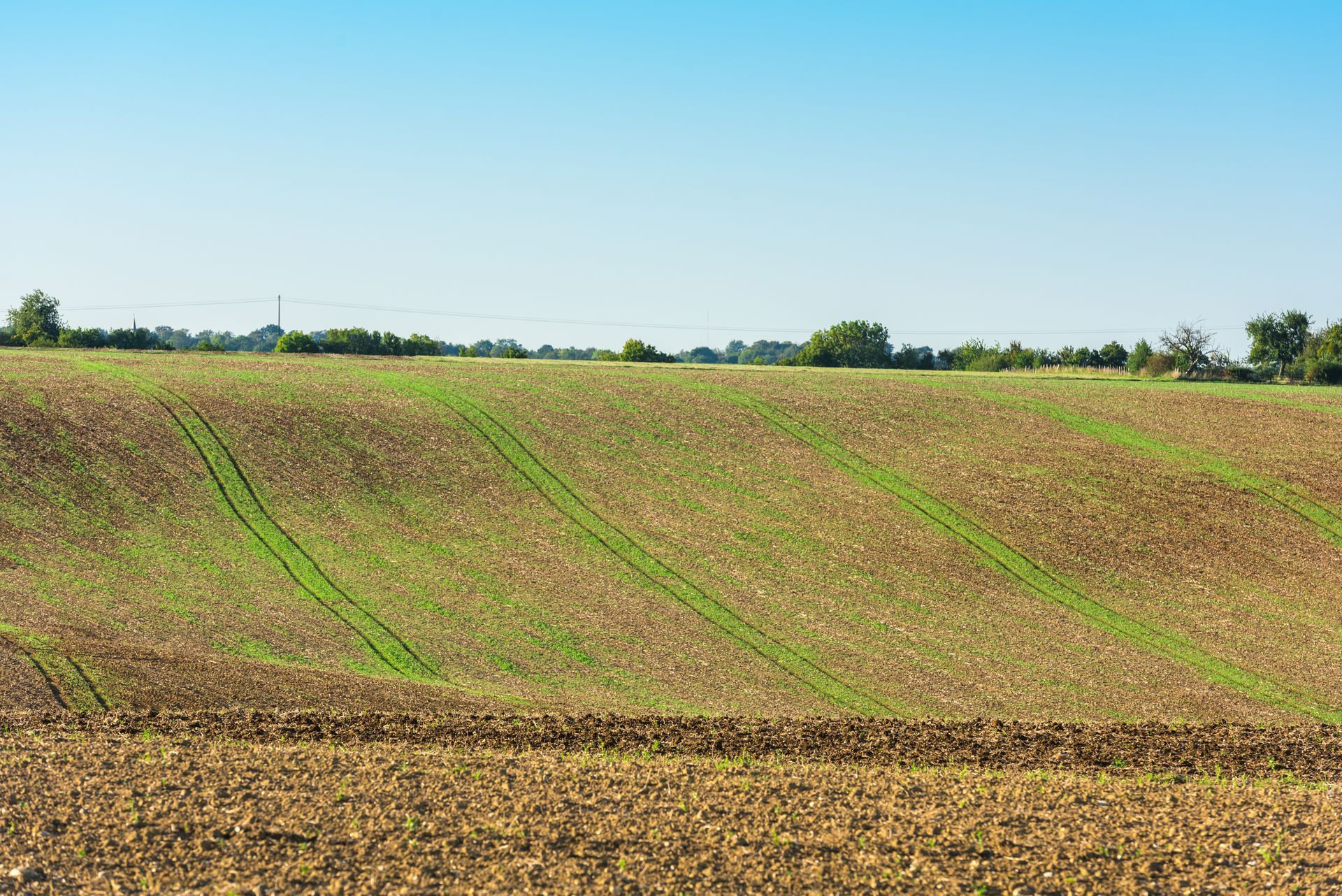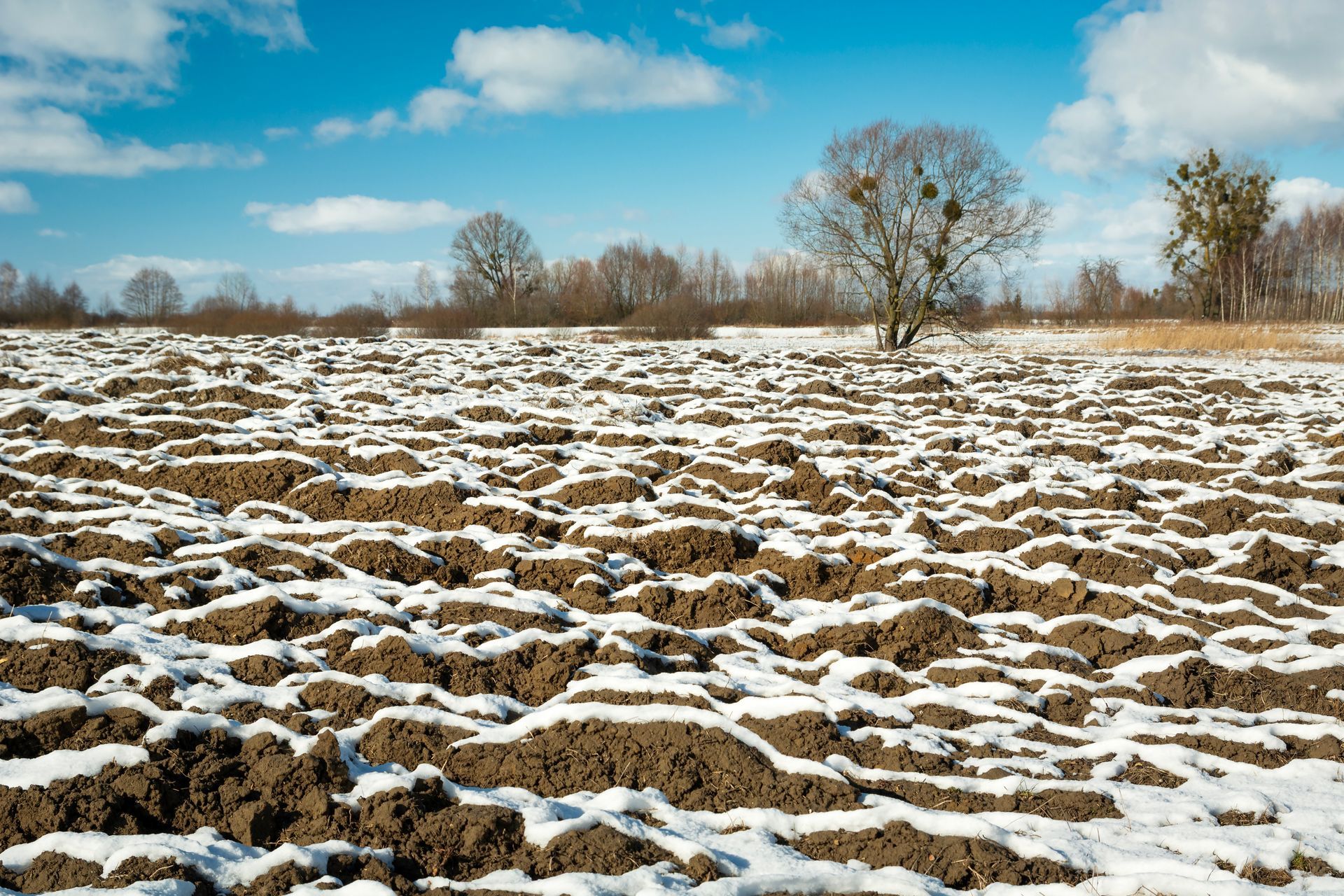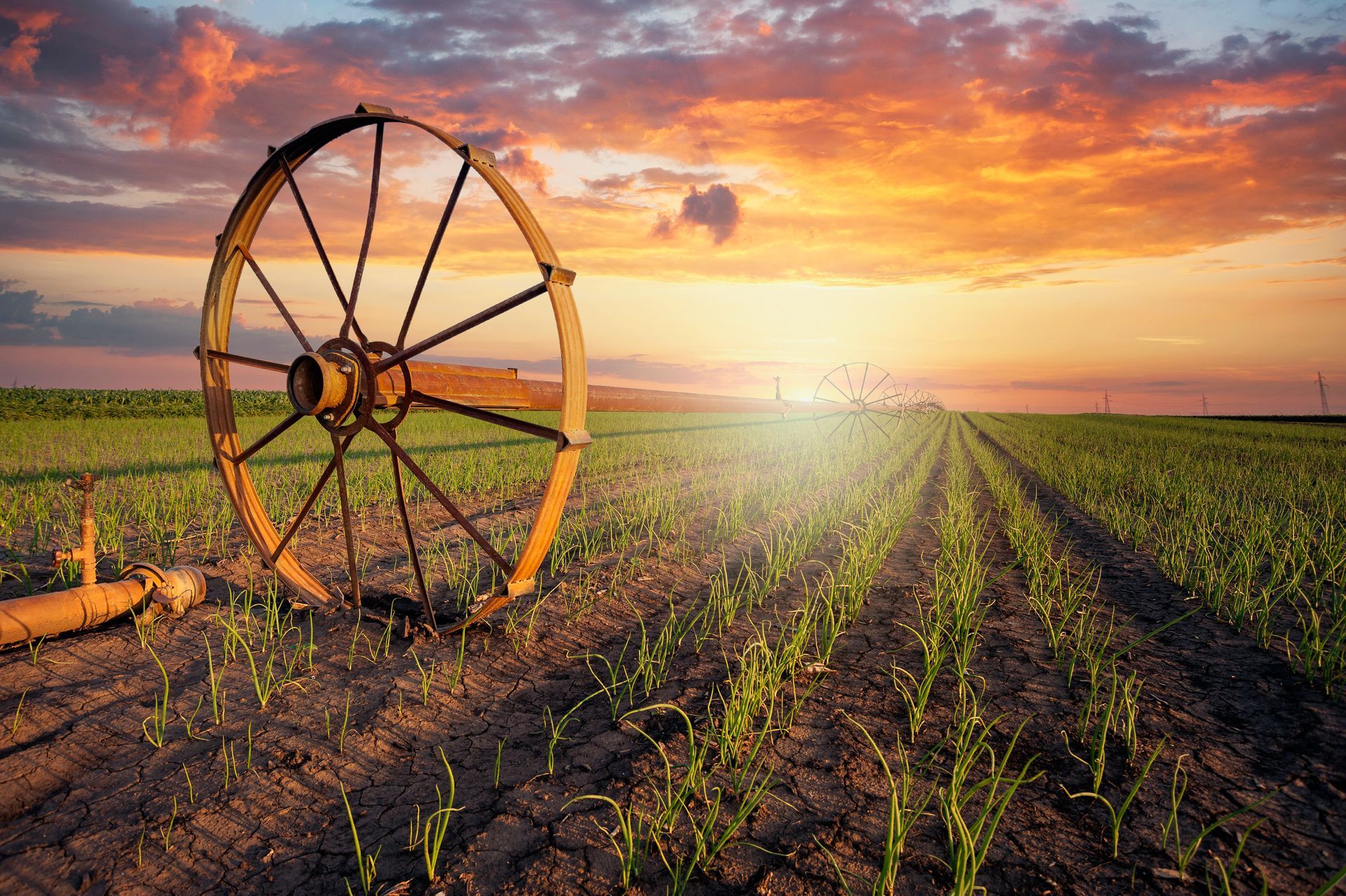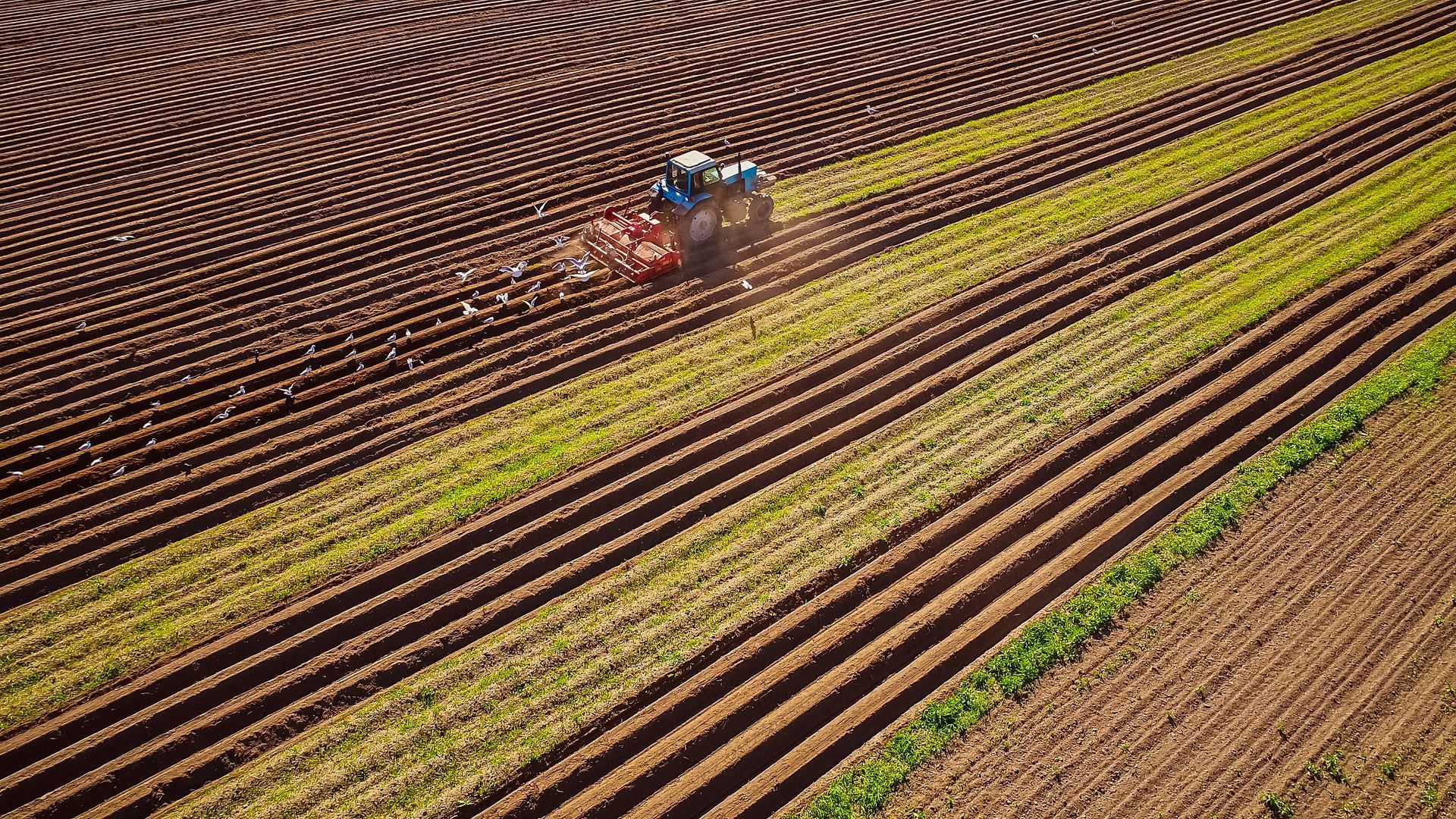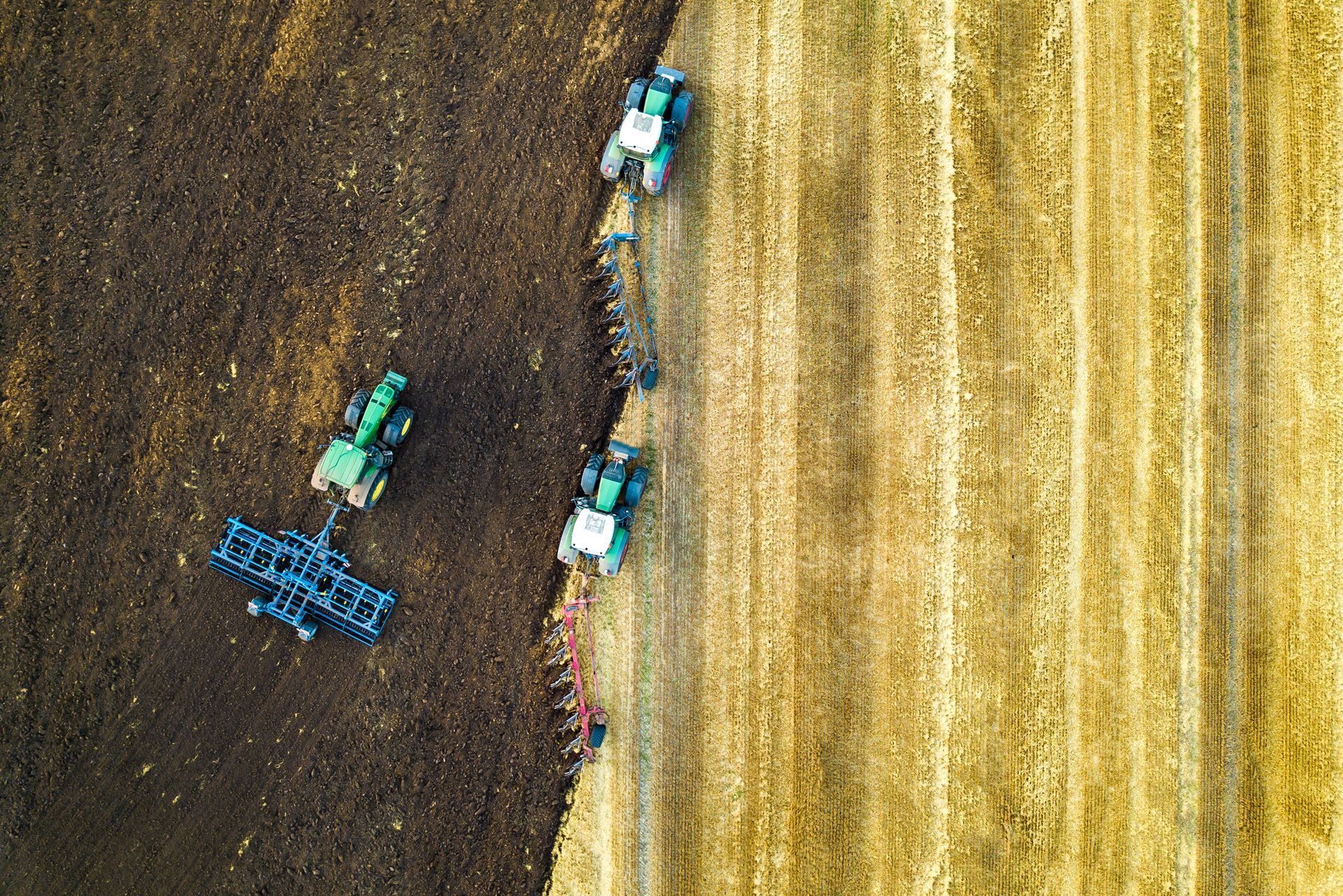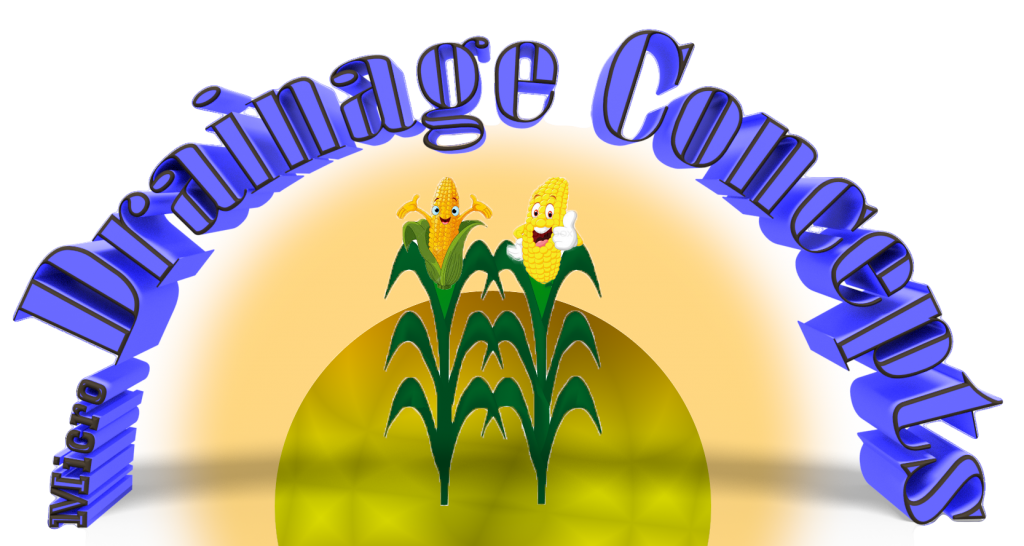
Soil Compaction
and How to Avoid it (Part 2)
Welcome again to the Richland Micro Drainage news section. We appreciate you taking the time to read our blogs. Last time we were speaking about soil compaction and how to avoid it by staying off sodden fields and reducing weight of farm equipment. Today’s article will continue in that trend and explore other options that will help reduce soil compaction.
Just like with your combine, the grain cart should stay on the same limited track and only follow the tracks left by the combine. The fewer tracks you leave the less compaction your fields must endure. Remember, this is not only about preserving this year’s crop, but also next year’s harvest as well.
Just like we mentioned with the combine and the bin, the grain cart should be emptied more often. Weight is the enemy and filling to maximum will only cause more damage. Again, plan-ahead as you notice it filling up head along tracks you’ve already traversed and get to the edge of the field to unload. What tracks? You may ask… Part of your plan should include knowing ahead of time where you are going to be pulling the cart. Once you establish a track, it is imperative that you stick to it as closely as possible. This may mean more driving around, but the fewer tracks you must drive the less overall soil compaction will take place. Furthermore, don’t till wet soil as it will lead to more compaction.
In Part 1 we discussed a possible remedial action you could take to prevent soil compaction from occurring in the first place. Drainage is step one, we can help you with a plan and equipment for proper drainage. Second step is cover crops. Cover crops are essential especially if you are operating No-Till, but even if you aren’t, a good cover crop will keep the pores in your soil healthy. They also provide soil with nutrients that are essential for better yields. If its too late for cover crops, we suggest trying other covers with organic material, which should help when you are experiencing flooding, or ponding from rain or snow melt.
Keep your fields healthy for the long term, talk to one of our skilled consultants today. They will go over things mentioned here and help you develop a plan that will maintain soil health on your property for decades to come. Thanks for reading.
